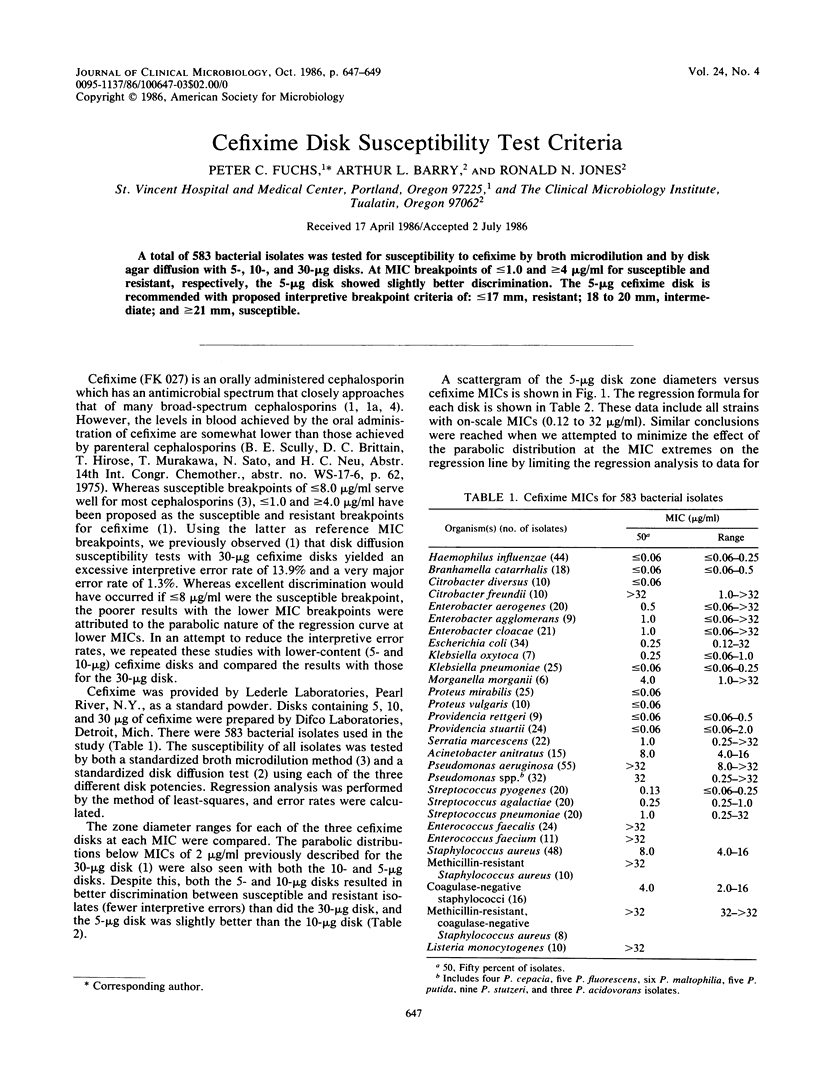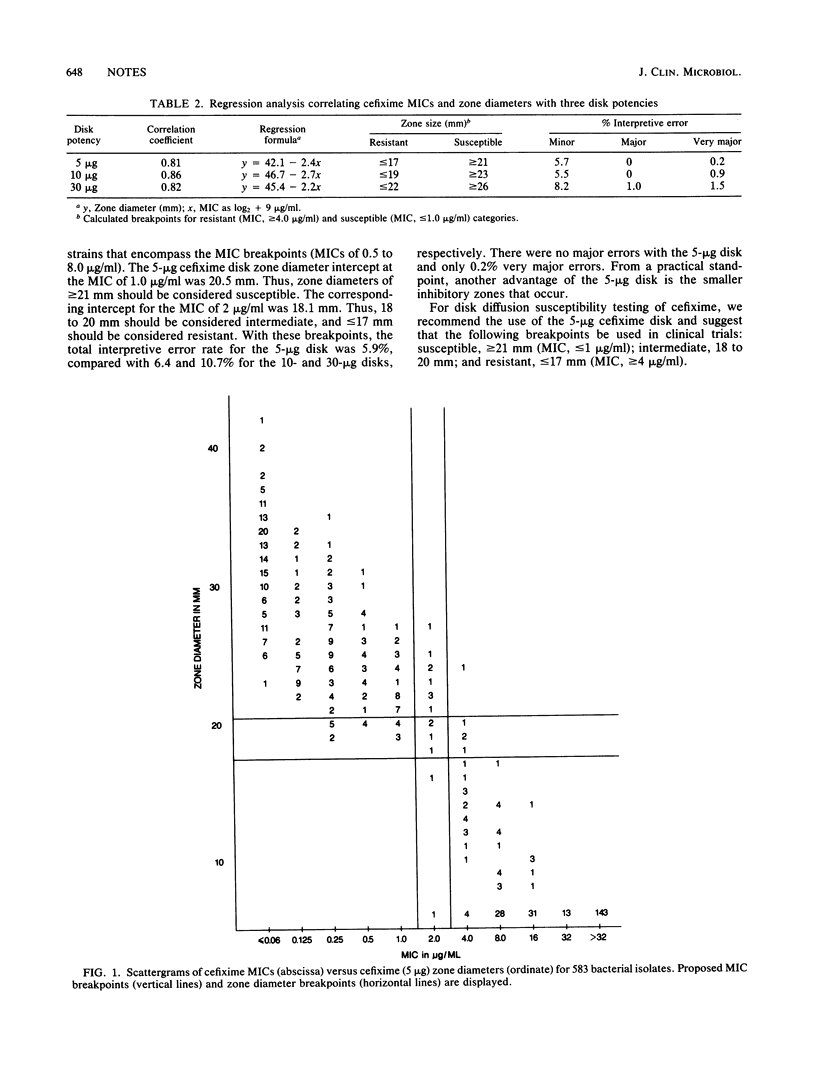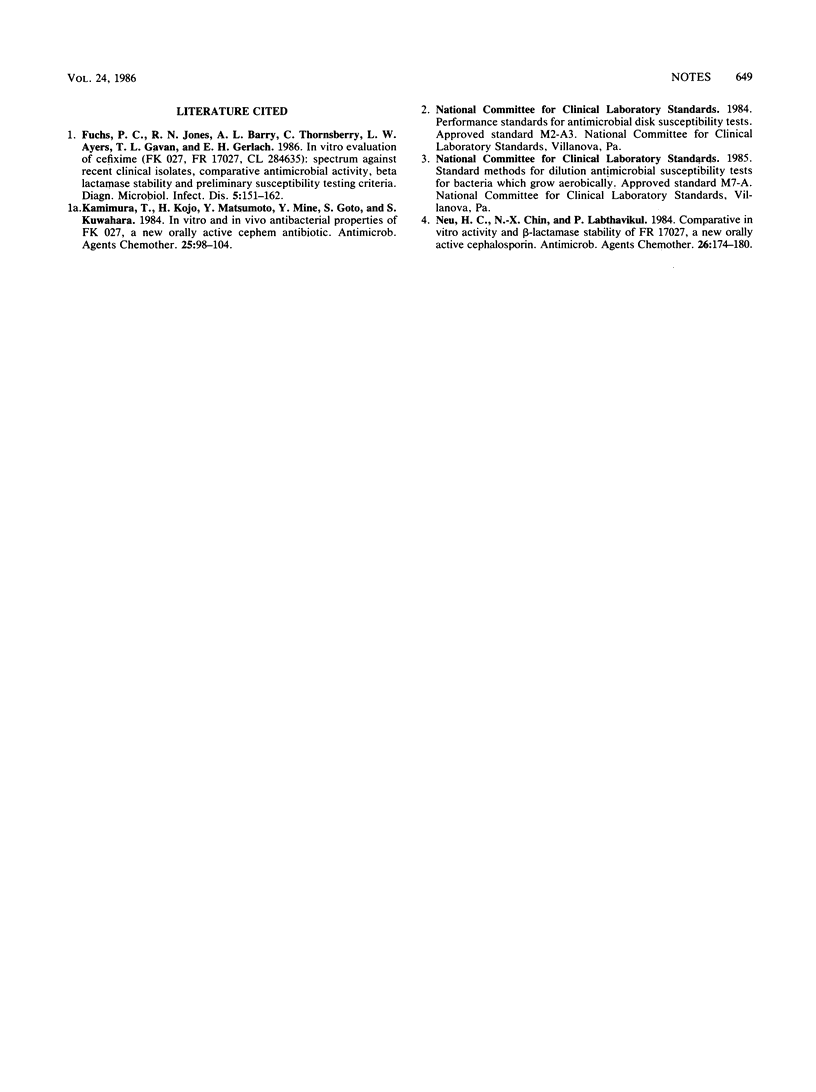Abstract
A total of 583 bacterial isolates was tested for susceptibility to cefixime by broth microdilution and by disk agar diffusion with 5-, 10-, and 30-microgram disks. At MIC breakpoints of less than or equal to 1.0 and greater than or equal to 4 micrograms/ml for susceptible and resistant, respectively, the 5-microgram disk showed slightly better discrimination. The 5-microgram cefixime disk is recommended with proposed interpretive breakpoint criteria of: less than or equal to 17 mm, resistant; 18 to 20 mm, intermediate; and greater than or equal to 21 mm, susceptible.
Full text
PDF


Selected References
These references are in PubMed. This may not be the complete list of references from this article.
- Fuchs P. C., Jones R. N., Barry A. L., Thornsberry C., Ayers L. W., Gavan T. L., Gerlach E. H. In vitro evaluation of cefixime (FK027, FR17027, CL284635): spectrum against recent clinical isolates, comparative antimicrobial activity, beta-lactamase stability, and preliminary susceptibility testing criteria. Diagn Microbiol Infect Dis. 1986 Jul;5(2):151–162. doi: 10.1016/0732-8893(86)90117-3. [DOI] [PubMed] [Google Scholar]
- Kamimura T., Kojo H., Matsumoto Y., Mine Y., Goto S., Kuwahara S. In vitro and in vivo antibacterial properties of FK 027, a new orally active cephem antibiotic. Antimicrob Agents Chemother. 1984 Jan;25(1):98–104. doi: 10.1128/aac.25.1.98. [DOI] [PMC free article] [PubMed] [Google Scholar]
- Neu H. C., Chin N. X., Labthavikul P. Comparative in vitro activity and beta-lactamase stability of FR 17027, a new orally active cephalosporin. Antimicrob Agents Chemother. 1984 Aug;26(2):174–180. doi: 10.1128/aac.26.2.174. [DOI] [PMC free article] [PubMed] [Google Scholar]


